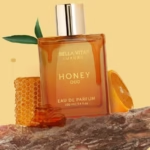We’ve all heard the saying, “You are what you eat.” But when it comes to your smile, that statement is truer than ever. Every bite you take affects your teeth, not just their appearance, but their strength, structure, and long-term health. While brushing and flossing are essential, your diet quietly shapes your oral health every single day.
Your dentist plays a major role in keeping your smile bright and healthy, but the process starts long before you ever sit in the chair. A Guelph cosmetic dentist might help you achieve the perfect aesthetic, but what you eat can determine whether that beauty lasts for years or fades too soon.
In this guide, we’ll explore the best and worst foods for your teeth, the ones that protect enamel and prevent decay, and the ones that slowly erode your dental foundation without you even noticing. Whether you’re sipping coffee in the morning, snacking in the afternoon, or winding down after dinner, every choice matters.
The Best Foods for a Strong, Healthy Smile
Some foods naturally work with your body to strengthen enamel, fight bacteria, and reduce inflammation. They’re not just good for your body, they’re your mouth’s best defense.
1. Crunchy Fruits and Vegetables
Apples, carrots, and celery are often called “nature’s toothbrushes,” and for good reason. Their crisp texture stimulates saliva production, which helps wash away food particles and neutralize acids. Saliva is your mouth’s natural defense system, it contains enzymes that break down bacteria and maintain pH balance.
- Apples scrub your teeth as you chew, reducing plaque buildup.
- Carrots and celery provide a similar scrubbing effect while delivering essential vitamins like vitamin A, which supports gum tissue.
- Leafy greens (like spinach and kale) contain calcium, folic acid, and other nutrients that help strengthen enamel and reduce inflammation.
These fibrous foods also help massage your gums and increase circulation, an underrated aspect of oral health.
Another angle worth reading — discover the connection that matters.
2. Dairy Products for Enamel Protection
Milk, cheese, and yogurt are rich in calcium and phosphates, minerals that fortify tooth enamel and neutralize acids in your mouth. Cheese, in particular, has been shown to raise pH levels after eating, reducing the risk of decay.
Even if you’re not a big dairy fan, a small piece of cheese after meals can help balance acidity. For those who prefer plant-based diets, look for fortified alternatives like almond or soy milk with added calcium.
3. Lean Proteins and Eggs
Protein-rich foods like chicken, fish, and eggs provide phosphorus, another mineral essential for strong teeth. Phosphorus helps rebuild and maintain tooth enamel, especially when combined with calcium and vitamin D.
Eggs also offer vitamin D, which aids in calcium absorption. Without enough vitamin D, your body can’t efficiently use the calcium you consume, weakening both teeth and bones.
4. Nuts and Seeds for Micro-Mineral Support
Almonds, cashews, and sesame seeds are small but mighty. They contain calcium, magnesium, and trace minerals that nourish both teeth and gums. They’re also low in sugar and can even help remove plaque as you chew.
Be cautious, though, choose unsalted, uncoated varieties. Sugary or caramelized nuts can quickly turn a healthy snack into a cavity risk.
5. Water: The Unsung Hero
While technically not a food, water deserves special mention. Staying hydrated is crucial for saliva production, which protects teeth from acid and bacterial growth.
Drinking water throughout the day helps rinse away food debris and maintain a neutral pH in your mouth. Fluoridated water, in particular, adds an extra layer of protection by strengthening enamel and preventing decay.
Think of water as the quiet partner in every oral care routine, simple, effective, and irreplaceable.
Foods That Secretly Damage Your Teeth
It’s easy to point fingers at candy or soda, but there are plenty of everyday foods that harm your teeth without obvious warning signs. From breakfast favorites to healthy snacks, some choices erode enamel or feed bacteria in subtle but significant ways.
1. Sugary Drinks (Yes, Even “Healthy” Ones)
Soda is a known culprit, but fruit juices, energy drinks, and flavored waters often pack just as much sugar and acid. Even “100% natural” juices can contain enough sugar to fuel bacteria that lead to cavities.
Acids from carbonated beverages weaken enamel, making teeth more susceptible to decay. When sugar joins the mix, bacteria feast, releasing acids that eat away at enamel for up to 20 minutes after every sip.
Quick tip: If you can’t give up your morning juice or sparkling drink, use a straw and rinse your mouth with water afterward.
2. Sticky or Dried Fruits
Raisins, dried apricots, and fruit bars might sound wholesome, but their sticky texture means they cling to your teeth for hours. The natural sugars in these snacks become a playground for cavity-causing bacteria.
If you love dried fruits, try eating them with nuts or rinsing your mouth right after. Better yet, opt for fresh fruit instead, you’ll get the fiber and hydration without the sticky residue.
3. Starchy Snacks
Crackers, chips, and white bread might not taste sweet, but your body quickly breaks down their refined starches into sugar. These soft, sticky carbohydrates tend to get trapped in molars, feeding bacteria in hard-to-reach crevices.
Whole-grain alternatives are less likely to stick to teeth and provide more nutrients for gum health. And as always, rinse or brush after eating to remove lingering particles.
4. Acidic Foods and Condiments
Lemons, pickles, tomatoes, and vinegar-based dressings might add flavor to your meals, but they also add acid to your mouth. Over time, acid softens enamel, making it easier for stains and decay to develop.
While you don’t need to avoid these foods completely, moderation matters. Pair them with foods that stimulate saliva (like cheese or vegetables), and avoid brushing immediately after acidic meals, it can actually wear enamel faster while it’s temporarily softened.
5. Coffee, Tea, and Red Wine
Few adults start their day without a cup of coffee or unwind without a glass of wine. Unfortunately, both can stain enamel and alter your mouth’s natural pH balance.
Coffee and tea are mildly acidic and contain tannins that cause discoloration over time. Red wine, while rich in antioxidants, has a similar effect, it’s both acidic and pigmented, a double hit to white enamel.
Rinsing with water between sips helps reduce their staining potential. And regular dental cleanings are the best way to keep your smile bright while still enjoying your favorite beverages.
Building a Tooth-Friendly Diet: Practical Tips That Work
Knowing which foods help or hurt your teeth is one thing. Building a daily routine around those choices is another. Small, consistent habits make a big difference over time, here’s how to protect your smile without overthinking every meal.
Balance Your Meals
Instead of focusing on restriction, aim for balance. Pair acidic or sugary foods with calcium-rich or fibrous foods that neutralize acid. For example:
- Enjoy fruit with a handful of nuts.
- Add cheese to a salad with vinegar dressing.
- Follow your morning coffee with a glass of water or milk.
These combinations help maintain a healthy pH and reduce enamel wear.
Chew More, Sip Less
Frequent snacking or sipping sugary drinks keeps acid levels high throughout the day. Try to limit between-meal snacking and focus on full meals instead.
When you do snack, choose foods that naturally clean your teeth, crisp vegetables, nuts, or cheese cubes.
Don’t Brush Immediately After Eating
It’s tempting to brush right after a meal, but doing so too soon can actually harm enamel, especially after consuming acidic foods or drinks. Wait at least 30 minutes before brushing to allow your saliva to neutralize acids and re-harden enamel.
In the meantime, rinse your mouth with water or chew sugar-free gum to stimulate saliva flow.
Stay Hydrated (But Smartly)
Water remains your best ally, but not all beverages labeled as “hydrating” are helpful. Avoid flavored or vitamin waters that contain added sugars or citric acid. Stick with plain or fluoridated water whenever possible.
If you’re exercising or outdoors often, rinse with water immediately after sports drinks, they’re surprisingly acidic.
Regular Checkups and Cleanings
Even with the best diet, plaque and tartar can still build up over time. Professional cleanings remove what brushing can’t and catch early signs of erosion or decay.
Your diet lays the groundwork, but consistent dental care ensures your efforts pay off in the long term.
The Connection Between Diet, Aesthetics, and Long-Term Oral Health
What you eat doesn’t just affect how your teeth feel, it shapes how they look. Certain foods stain, others protect, and some even help naturally brighten enamel.
The Role of Minerals in Smile Aesthetics
Calcium, phosphorus, and vitamin D all play roles in remineralizing enamel, the natural repair process that keeps teeth hard and glossy. Without these nutrients, enamel weakens and loses its shine.
Leafy greens, fish, dairy, and nuts supply the building blocks your smile needs to stay bright naturally, without relying solely on whitening products.
Stain Prevention and Reversal
If you’re concerned about discoloration, diet adjustments can go a long way. Avoiding excessive coffee, red wine, and dark sauces reduces staining. Crunchy produce like apples and celery can help polish surface stains naturally between professional cleanings.
Protecting Cosmetic Dental Work
If you’ve invested in whitening, veneers, or other aesthetic treatments from a Guelph cosmetic dentist, diet becomes even more critical. Acidic foods and pigmented beverages can shorten the lifespan of cosmetic work by dulling finishes or weakening bonding materials.
To maintain results, use a straw for acidic drinks, avoid smoking, and commit to regular maintenance appointments.
Final Thoughts: Eat for Your Smile, Not Just Your Body
Every meal you eat leaves a mark, not just on your health, but on your smile. The foods that help your body thrive often support your teeth too, while those high in sugar or acid quietly work against them.
The good news? You don’t need to give up your favorite flavors to protect your teeth. Awareness, balance, and consistency are enough to keep your enamel strong and your smile bright.
When combined with regular cleanings and mindful care, a tooth-friendly diet can help prevent decay, preserve cosmetic results, and keep you smiling with confidence for years to come.
So next time you reach for a snack or sip your favorite drink, remember: every choice counts, and your teeth will thank you for it.
New thoughts await — explore more posts at Management Works Media that ignite imagination.






